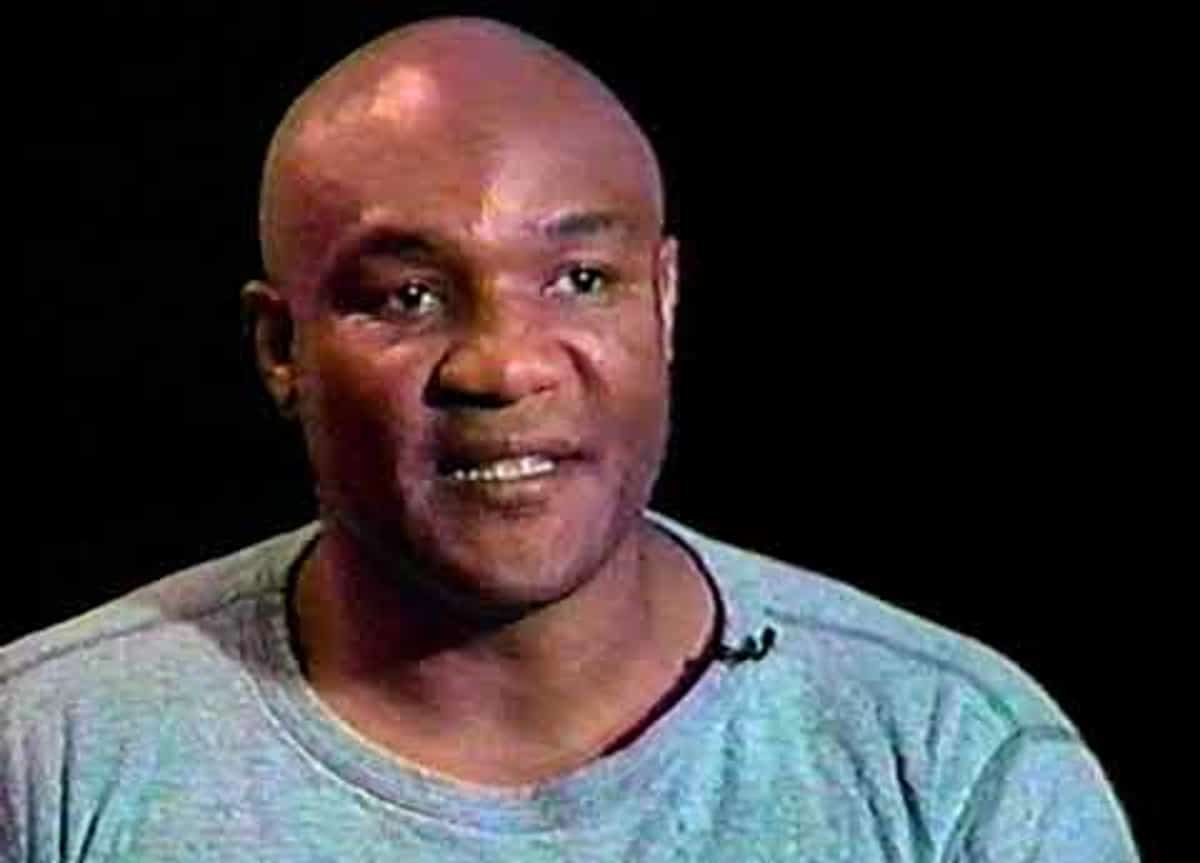In so many ways, as he himself is always proud to point out, George Foreman is THE American success story. Born poor, seemingly with no way out, the the young Foreman, who was blessed with enviable physical assets such as immense strength, size, athleticism and raw power but had not yet found out what to do with these gifts, was at this time reduced to robbing and stealing to make it.
Foreman, if he was in bad mood (and he almost always was in those days) was one of the most frightening entities a person could be unfortunate enough to run into in Houston’s “Bloody Fifth.” If Mike Tyson, and before him Sonny Liston, had it tough during their, shall we say, formative years (and they both did indeed), Foreman’s early to teenage years were nothing short of hell. And how “Big George” made the circumstances he was forced to live under pay. Big time. And in a good way. A productive way.
It’s been written how, quite ironically, the young Foreman was too poor to be able to buy himself a ticket to the movies, yet he now has one massive, brilliant movie all of his own (‘Big George Foreman’ opening in cinemas everywhere this week). Truly, Foreman rose above monstrous odds to become the epitome of The American Dream.
You know the story: how the tearaway Foreman was “saved” by president Lyndon Johnson’s Job Corps vision, of giving back to unprivileged youth (Foreman writing, years later in his autobiography, how he wore his LBJ Stetson with pride, the heck with anyone who felt the hat was not cool or fashionable). Foreman was soon introduced to boxing by Doc Broadus (played by Forest Whitaker in the new film) – and the rest is history.
Making almost surreal progress Foreman, who had his first amateur fight in 1967 (having initially gone to the gym “to lose weight”) was by 1968 winning the Olympic gold medal in Mexico City. Yes, George is proof of how natural, generationally special talent can exist.
Going pro the following year, the not yet 21 year old Foreman was soon armed with a team that consisted of Dick and Sandy Saddler, and Archie Moore. Foreman was the most physically strong young heavyweight contender to have emerged in years. After a campaign that saw Foreman take a quantity over quality approach (George’s only “big name” victims from this period being Chuck Wepner and George Chuvalo, both being stopped in three rounds), Foreman challenged heavyweight king Joe Frazier.
And the words “Down goes Frazier! Down goes Frazier” were soon to be heard, bellowed as they were by Howard Cosell in January of 1973. Foreman was the new king after six knockdowns scored in less than six minutes of brutally one-sided action. Nobody thought Foreman – stronger and harder hitting that his hero Liston – would ever lose.
Yet today, Foreman, in promoting the new film, says the loss he would suffer, to the incomparable Muhammad Ali in October of 1974, is the fight and the result that means so much to him. The loss, Foreman says, made him the great fighter he would become. Foreman says today how he was never happy after winning fights, and that a win over Ali would not have made him any more happier a person. The loss forced Foreman to have a change of thinking, to appreciate winning as well as losing.
Fast-forward 20 years – and for sure, a heck of a lot of things happened in Foreman’s life during the years 1975 to 1993 – and Foreman put everything he had learned, experienced, suffered, enjoyed, cried about, laughed about, dreamt about into place inside a Las Vegas boxing ring on the night of November 5, 1994.
Foreman’s well-placed and infinitely practised left-right, left-right combo downed defending heavyweight champ Michael Moorer and George, at age 45, was “once again…..the heavyweight champion of the world!” as bellowed MC Michael Buffer.
The ring career should have ended there. Foreman had forever exorcised himself of the demons that set about him after Zaire, and he had also forced so many naysayers to eat their words. George truly was King George now, and he had nothing else to prove; not to himself or to anybody else. Yet Foreman, offered many millions of dollars, fought on, with talk of a fight with Tyson doing the rounds.
Foreman never knocked out another man after the Moorer fight. He had no need to do so. He had come full circle. George had showed all over again what a special fighter, indeed human being, he was and is. And Foreman had shown how, if one has true faith, he or she can accomplish anything.
Now, how much more of the George Foreman story can the new film show us?
Have you booked your cinema ticket yet!
